Birds on a Wire. The Avian Gladiators of Panama
Birds on a wire looks at the legal sport of cock fighting in Panama a country with deep roots to the sport.
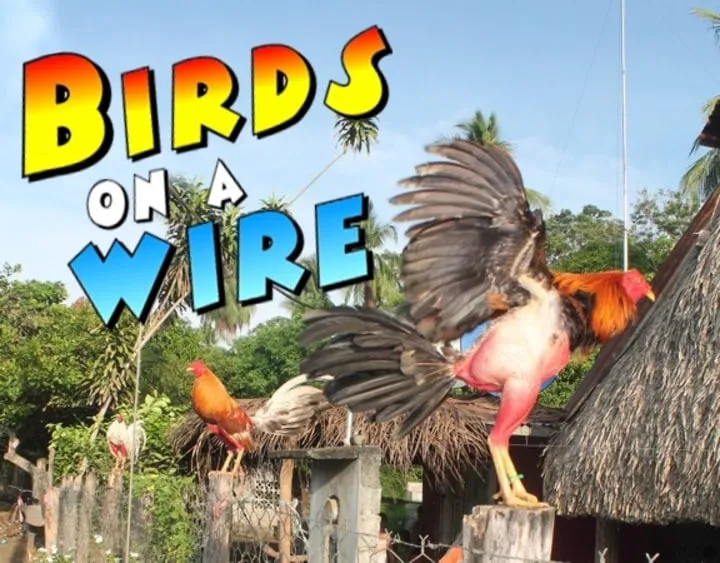
Birds on a wire looks at the legal sport of cock fighting in Panama a country with deep roots to the sport.

Panama is full of strange and wonderful sights. Regardless of whether you are a resident or a tourist this country has a wide diversity of interesting sights- the trick is knowing where to look.
The other day, as I drove through the small rural hamlet of Corazon de Jesus, near the port town of Puerto Armuelles, I saw about a dozen birds perched on separate posts. Intrigued as to why these beautiful plumed fowls were sitting on a fence, I had to stop and enquire.
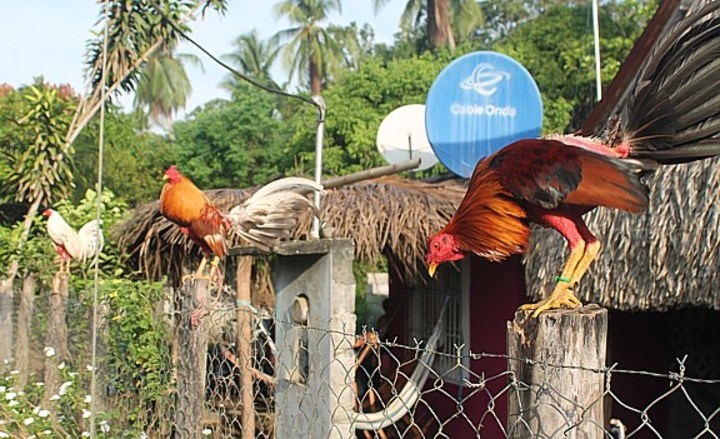
On closer inspection I noticed short pieces of wire attached the birds to the posts. Obviously to prevent them from taking off and flying into the passing traffic.
The birds on the wires were the property of LUIS SOVENIS, a 30 year old Panamanian. Luis trains these birds for cockfighting – a sport that is perfectly legal in Panama.
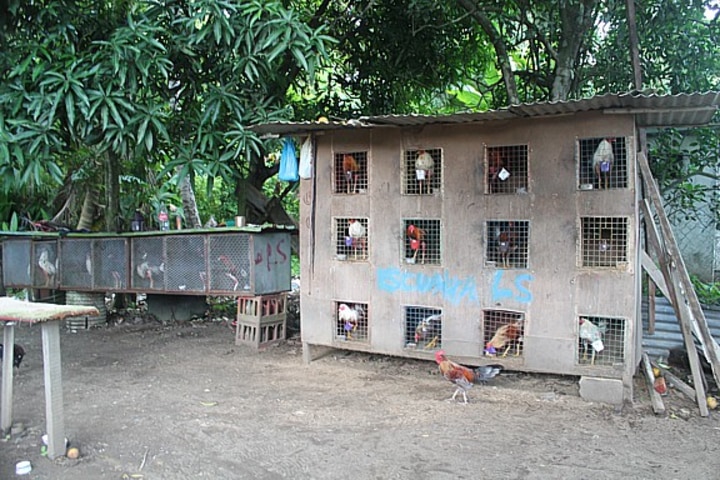
Luis showed me his stable of around 30 of these finely feathered latter-day avian gladiators. I had questions, the first being Why does he do this – is a sport or a business? With the able support of my friend and local translator, Kate Smith, Luis told me that is was a bit of both. Yes he made some money from it, it was partially a hobby and yes, he definitely regarded it as a sport.
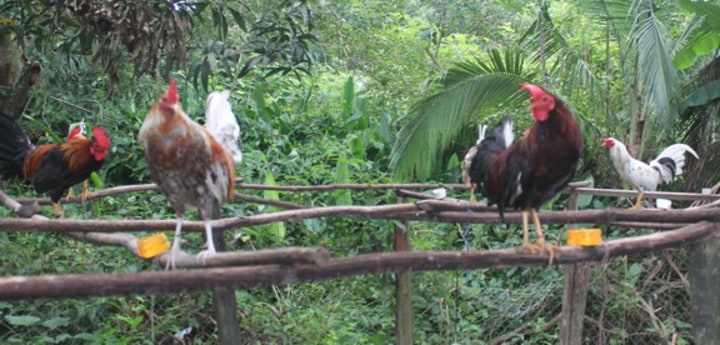
He went on to explain that he takes a few of his birds to various local towns and cities and there he and others bet on the result.
I asked how much the birds were worth and he went to a nearby bird pen and brought back a fine looking white cock. This was his champion as this bird (which for some strange reason didn’t have a name) had won all 5 of his last fights.
As an animal lover and someone who does not like seeing any creatures used for sport or entertainment, I had to ask: “is this cruel?” To be honest, I almost didn’t ask as I could see Luis tenderly holding his prize bird and gently stroking it – just the way you would stroke a cat or dog. No, he didn’t think it was cruel, he loved his birds and regarded them as part of his family.
Another silly question I asked was did the winning birds get a special meal or conversely, did the losing birds become a meal? This got the expected short round of laughter. Clearly, Luis treats his birds humanely (until of course they get into the ring).
There were veterinary supplies on the table with some syringes and what I took for some vitamin supplements. So clearly, while at home, the treatment is close to that of pets, and importantly , they are shown genuine love & affection.
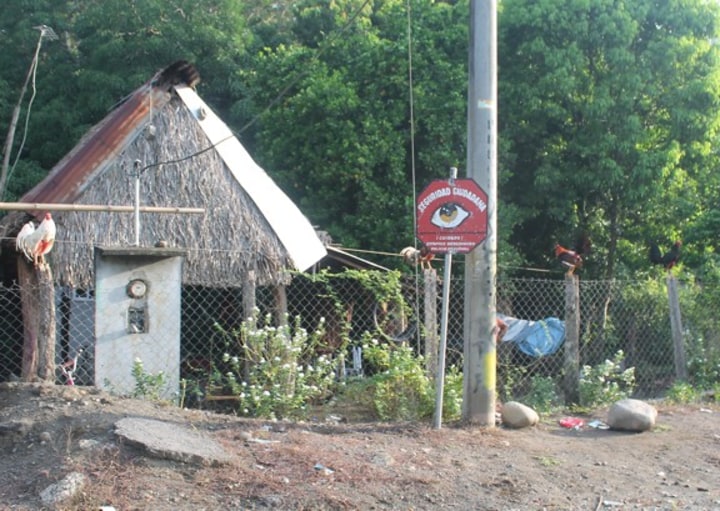
It is easy for us to criticize aspects of another culture that we disagree with. I come originally from Britain where stag (deer hunting) continues and the ban on foxhunting only came into effect in 2004. In the United States it is still legal to hunt Moose. Spain still has bullfights. Personally, I believe any activity, sporting or otherwise that causes any animal pain or distress is wrong.
I learned that Luis’s champion bird was successful in his bout at the Puerto Armuelles Feria. I hope, he will now retire and be used for stud purposes – this happens with racehorses, so why not with retired avian gladiators?